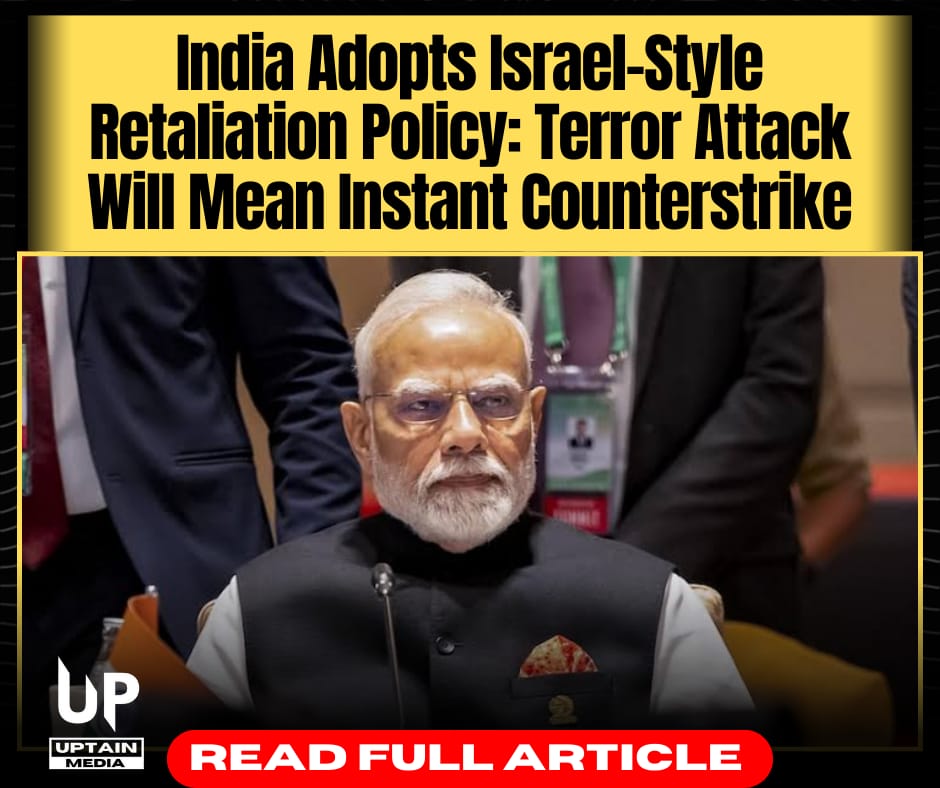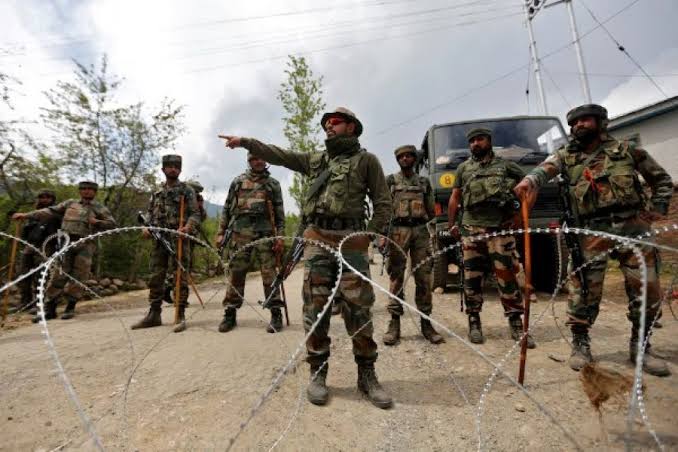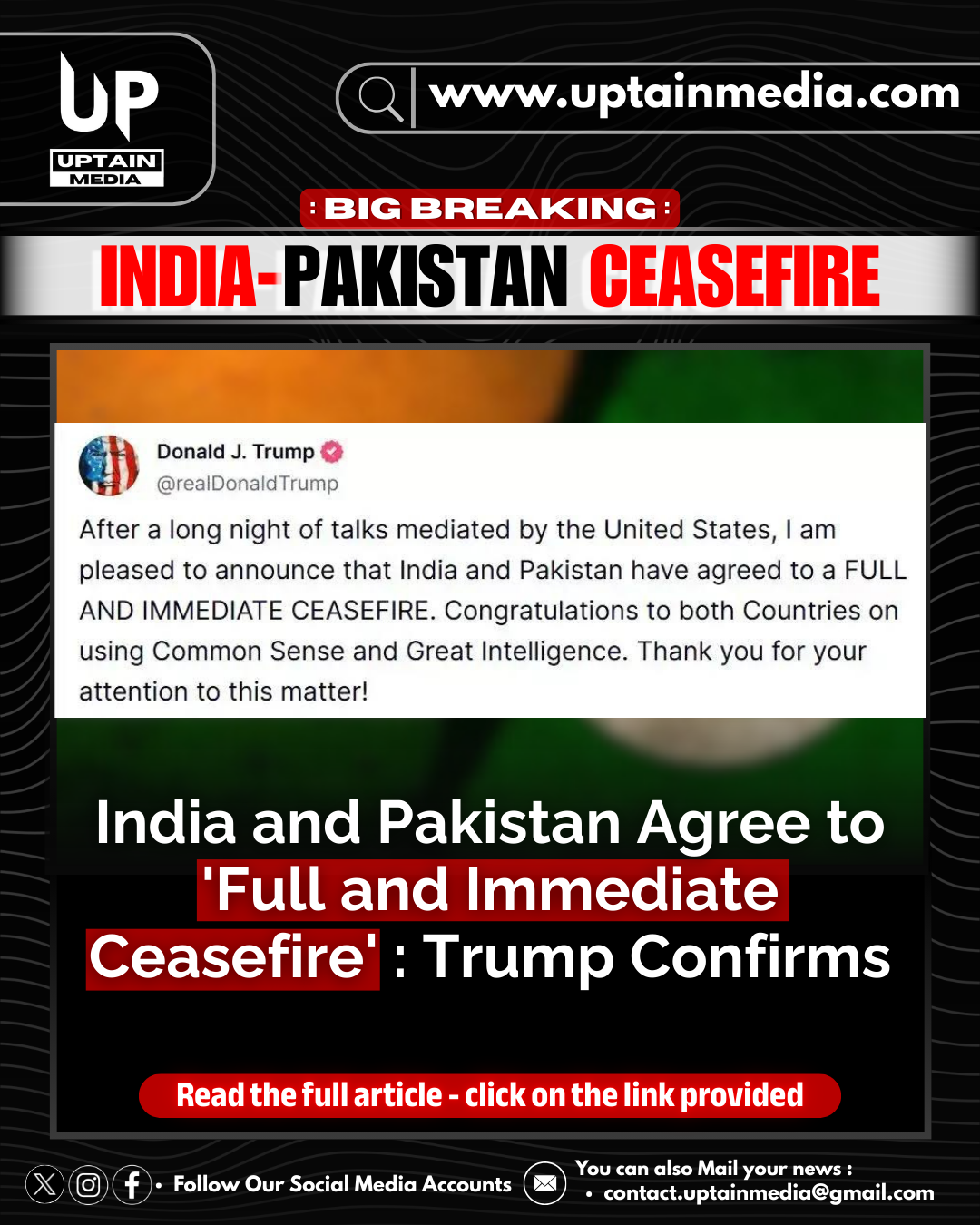
India Adopts Israel-Style Retaliation Policy: Terror Attack Will Mean Instant Counterstrike
In a significant policy shift, India is now taking a tougher stance on terrorism. Inspired by Israel’s defense doctrine, the Indian government has decided that any terrorist attack on its soil will be treated as an act of war—followed by an immediate retaliatory strike.
Quick Read:
India adopts a new, aggressive counter-terrorism policy inspired by Israel
Any terror attack will now be treated as a declaration of war
Swift retaliation against Pakistan expected in case of any provocation
High-level security meetings held in Delhi amid rising border tensions
PM Modi, Defense Minister Rajnath Singh, NSA Ajit Doval, and military chiefs attended crucial strategy sessions
India’s national security strategy has just taken a sharp and serious turn. In a bold move, the Indian government has decided to mirror Israel’s approach to terrorism—treating any act of sabotage on its soil not just as a crime, but as an act of war. And war, of course, will be met with swift and decisive retaliation.
This isn’t just symbolic tough talk. It’s a concrete shift in policy. The philosophy behind it goes all the way back to former Israeli Prime Minister Golda Meir, who famously believed that terror should be answered with strength, not silence. For years, Israel has followed that principle—and now, India is officially doing the same.
Tensions Rising on the Border: Delhi Goes Into Action Mode
The backdrop to all this is growing tension along the India-Pakistan border. With fears of a full-blown military conflict on the rise, Delhi isn’t waiting around. It’s already swinging into high gear.
Saturday morning saw a series of high-level meetings in the capital. The Chief of Defence Staff, General Anil Chauhan, met with Defence Minister Rajnath Singh to brief him on the situation at the border and the army’s preparedness.
Later in the day, Prime Minister Narendra Modi chaired a high-stakes emergency meeting with the country’s top security officials. Present in that war room were the chiefs of all three armed forces, CDS Anil Chauhan, NSA Ajit Doval, Defence Minister Rajnath Singh, and several other senior officials.
According to insiders, it was during this meeting that the new counter-terror doctrine was formalized. The key takeaway? India will no longer wait for proof or international approval before acting. If there’s an attack, there will be a response—swift and surgical.
This policy shift signals a new phase in India’s defense posture, one that focuses more on deterrence than diplomacy.
Why Take a Page from Israel’s Playbook?
Israel has long been admired for its uncompromising stance on national security. Its belief is simple: any attack on its citizens is an attack on the nation—and it must be answered with force. For Israel, retaliation isn’t about revenge—it’s about deterrence.
India adopting a similar doctrine sends a powerful message to its adversaries. The days of measured silence after a terror strike may well be over.
Security analysts say this change elevates India’s status on the global stage. It tells the world—and especially its neighbors—that India won’t be a passive victim anymore.
What This Means Going Forward
With this new policy, India’s threshold for action just got a lot lower. The government has effectively drawn a red line—and any crossing of it could lead to immediate military action, particularly against Pakistan, which has often been accused of harboring anti-India terrorist groups.
At the same time, this assertive move comes with its own set of challenges. It raises the stakes for both countries and increases the risk of escalation. But the message is loud and clear: India is done playing defense when it comes to terror.
India’s adoption of a strike-first, no-tolerance policy toward terrorism marks a historic shift in its national security approach. Inspired by Israel’s long-standing doctrine of rapid retaliation, the new strategy is designed to instill fear in perpetrators and restore a sense of control and confidence among Indian citizens.
With tensions at the border and global eyes watching closely, this could be a game-changing moment in the subcontinent’s geopolitical landscape.














Post Comment